On October 24, we celebrate the shared birthday of two notable figures from our book, “The History of Silver Lake as Told Through Its Deeds”: William Penn and Harry Franklin Peck. While they lived in very different times, Penn’s legacy, in particular, has left a profound impact on the history of Pennsylvania and beyond.
William Penn
William Penn, an English Quaker and the founder of Pennsylvania, was a man deeply rooted in his faith and committed to its ideals of peace, tolerance, and equality. He was born October 24, 1644 in London. As a Quaker, Penn advocated for religious freedom, fair treatment of Native Americans, and the establishment of a society based on principles of justice and morality. His vision for Pennsylvania was one of harmony, where diverse groups could coexist peacefully—a rare concept in the tumultuous 17th century.
After the death of William Penn’s father, Admiral Sir William Penn, King Charles II settled a large debt owed to him by granting Penn a vast area of land west and south of New Jersey on March 4, 1681. Penn initially wanted to name the territory “New Wales,” then “Sylvania,” meaning “forests” or “woods” in Latin. However, King Charles II insisted it be called “Pennsylvania” in honor of Penn’s father. Although Penn was uncomfortable with the tribute, he ultimately accepted the name.
The next year, in 1682 the Duke of York deeded to Penn his claim to the three lower counties on the Delaware, which are now the state of Delaware and where, interestingly, another character in our book, Frank Penington a Stonesifer ancestor fished and swam a Silver Lake in Middletown, Delaware.
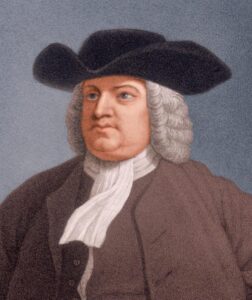
Penn’s goal in founding Pennsylvania was to create a safe haven for Quakers and other religious minorities, reflecting his deep commitment to religious freedom and tolerance.
Penn’s legacy extended beyond the founding of Pennsylvania, as his sons—John, Thomas, and Richard—took on leadership roles as colonial governors. However, unlike their father, they did not uphold the same Quaker ideals of peace, fairness, and religious tolerance. This departure from William Penn’s principles led to challenges for the colony, particularly in maintaining the harmonious relations with Native Americans that their father had worked so hard to foster.
Despite these differences, the Penn sons were instrumental in shaping the colony’s future, including the partitioning of land that would eventually encompass Silver Lake. A notable land grant dated June 20, 1741, issued to William Passmore, marks the earliest documented instance of land ownership in the area surrounding Silver Lake. This grant, covering lands in present-day Newberry, Fairview, Warrington, and Monaghan Townships, was authorized by John, Thomas, and Richard Penn, the sons and heirs of William Penn, and played a key role in the early settlement and development of the region. Eventually, shortly after the Revolutionary War, a Quaker family, John and Elizabeth Harman, created Silver Lake to power their grist mill outside Lewisberry.
As we reflect on William Penn’s life and his influence, we see a man who exemplified the Quaker values he so deeply held.
Happy Heavenly Birthday to Harry Franklin Peck
Harry F. Peck, born in 1924 in the borough of Dauphin, Pennsylvania, was the husband of Shirley R. Miller, whom he married in 1946. He became the son-in-law of Bill and Florence Miller, the central figures in the “Linger Longer – A Miller Tradition” chapter of our book. Harry was raised by his mother, Nellie (Lebo) Peck, after the early death of his father when Harry was just eight years old. Strong family ties helped shape Harry’s upbringing, and he spent his youth working on a farm and orchard.
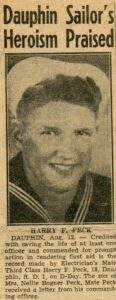
When the U.S. entered World War II, Harry enlisted in the U.S. Navy, where he served as an Electrician’s Mate 2nd Class. He was aboard the LCT(A)-2037 during the Normandy invasion, as part of the 6th wave at Omaha Beach in the amphibious assault of Operation Overlord. The LCT(A)-2037, a British craft that had been “reverse lend-leased” to the U.S. for the invasion, provided crucial close-range gunfire support. On its return to the convoy, the craft was struck by German artillery, leaving it inoperable and stranded offshore, exposed to relentless enemy fire from the fortifications above.
Harry’s last entry in his wartime diary was June 5, 1944.
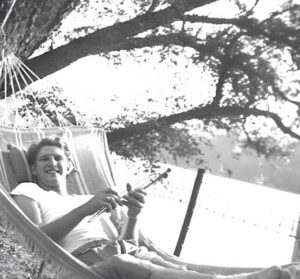
After the war, Harry returned home and worked as an electrician. He frequently sought peace and relaxation at the ‘Linger Longer’ cottage on Silver Lake, a place where family gatherings brought both serenity and joy.
Today, we remember and celebrate Harry F. Peck on what would have been his 100th birthday. We celebrate his bravery and dedication during the war, his dedication to his family, along with his cherished moments at Silver Lake.

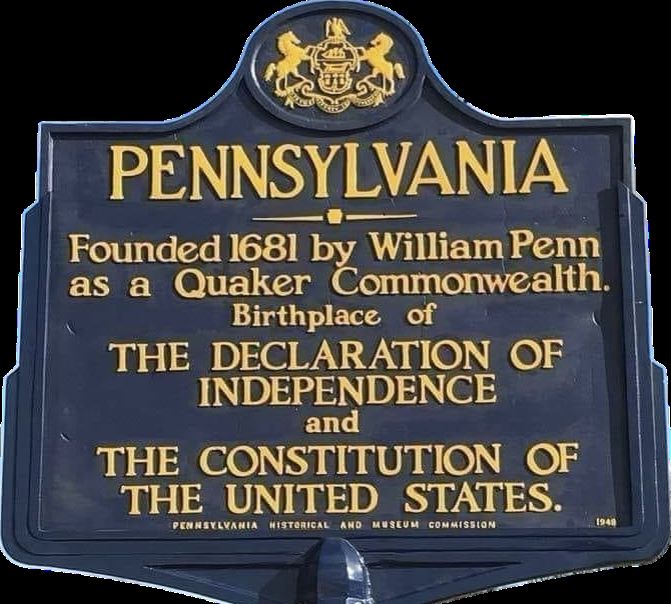
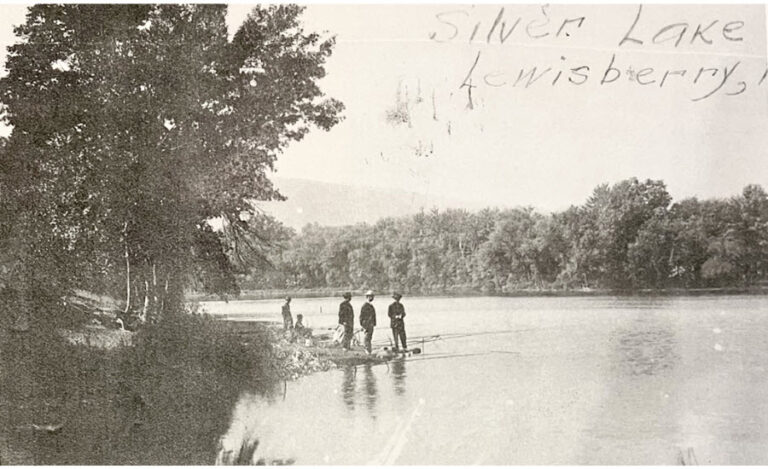
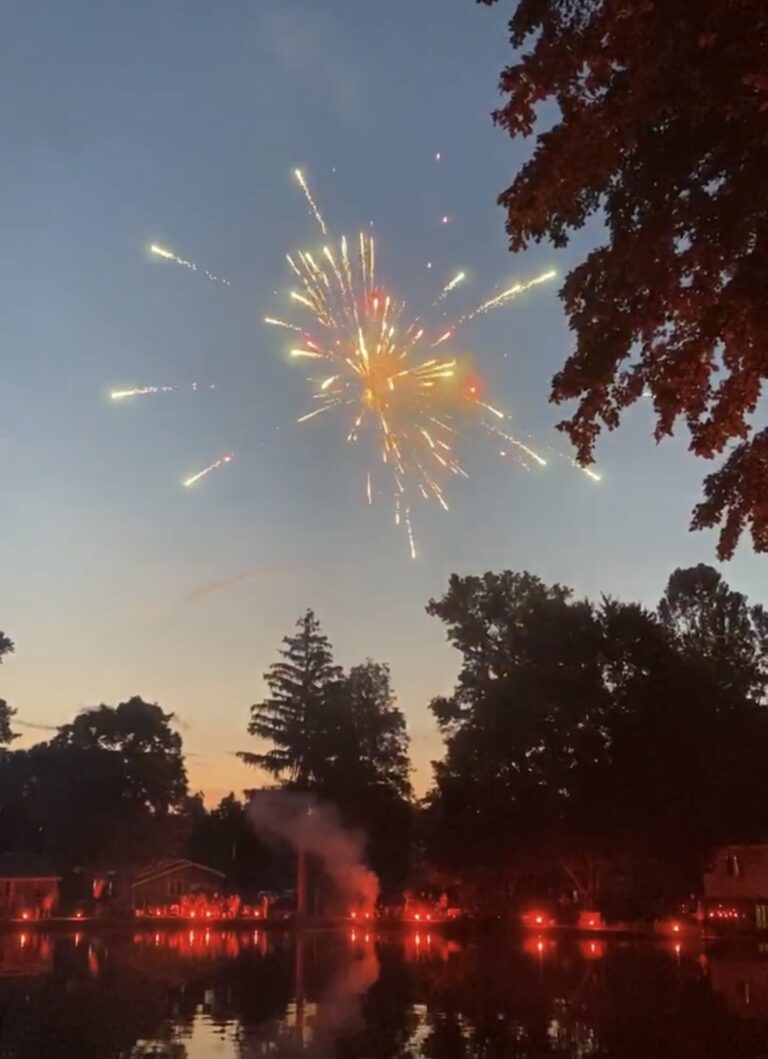

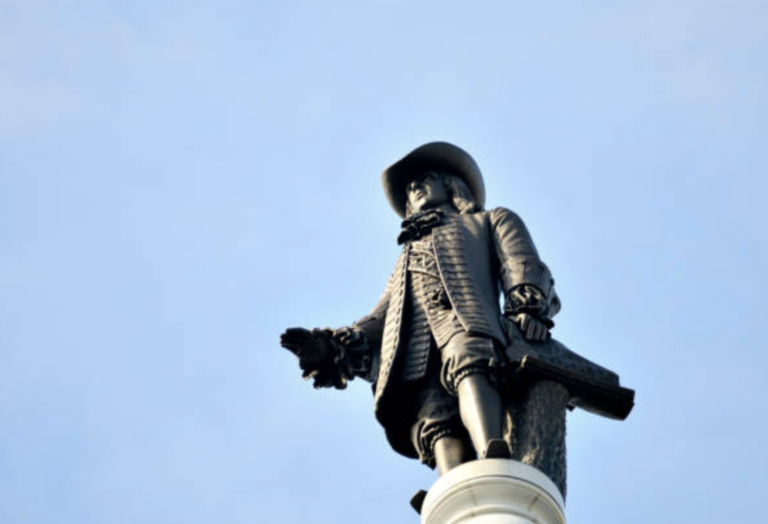
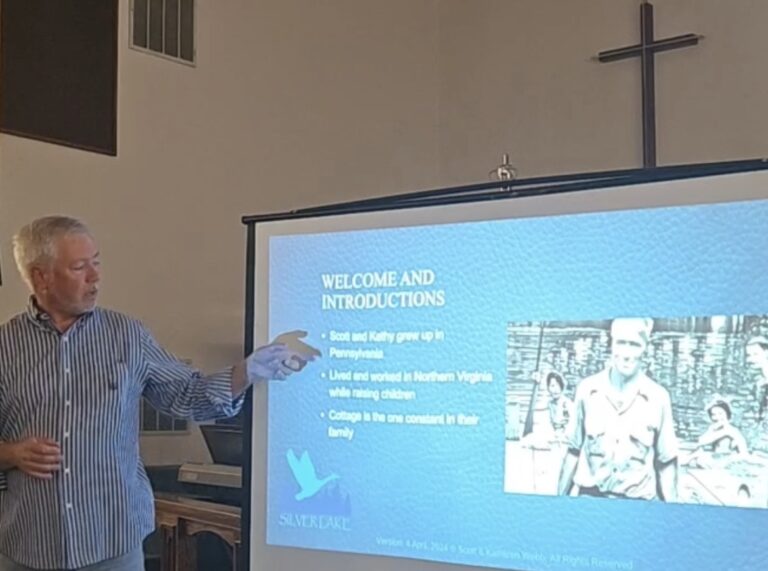
One Comment
Comments are closed.